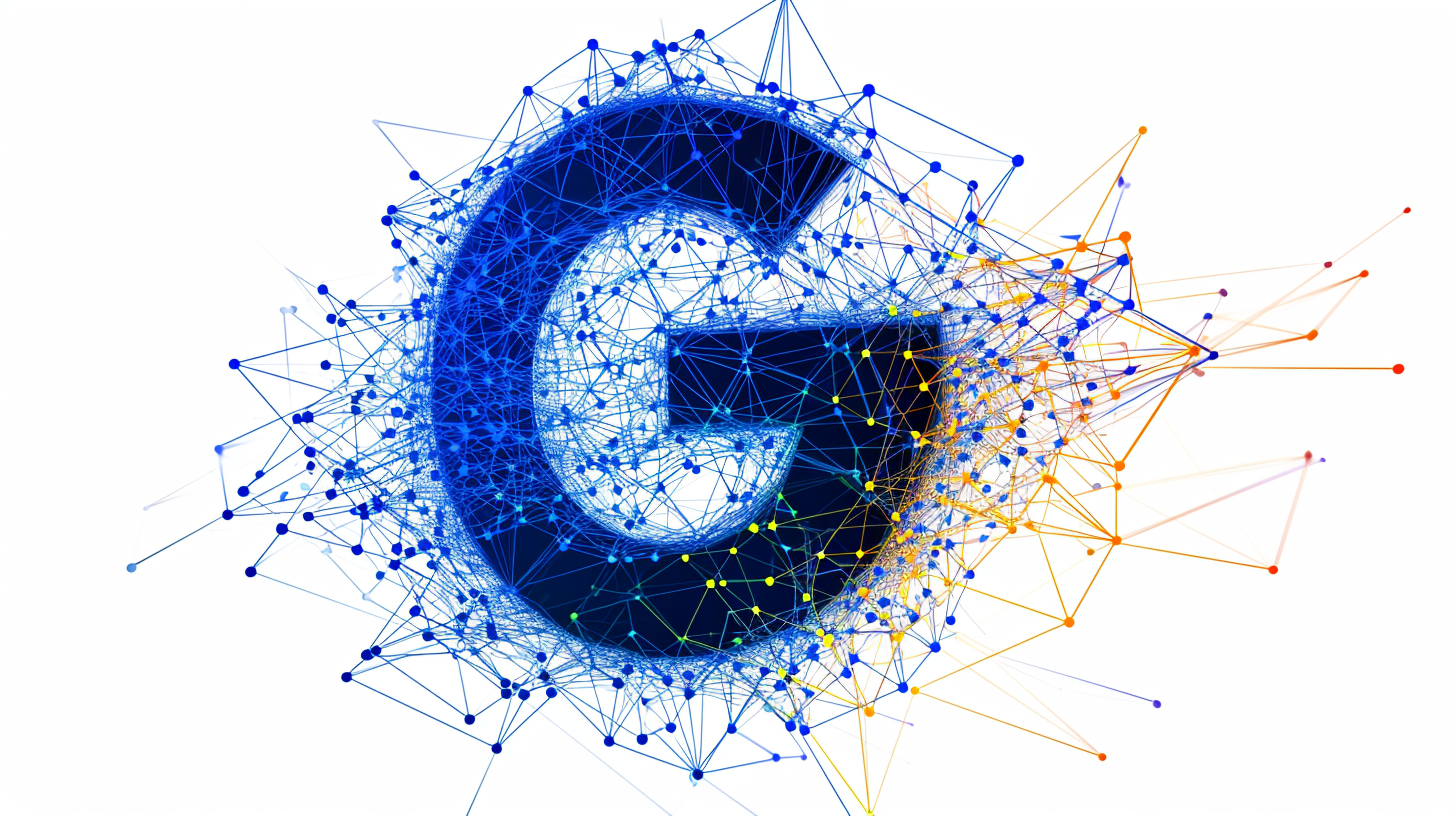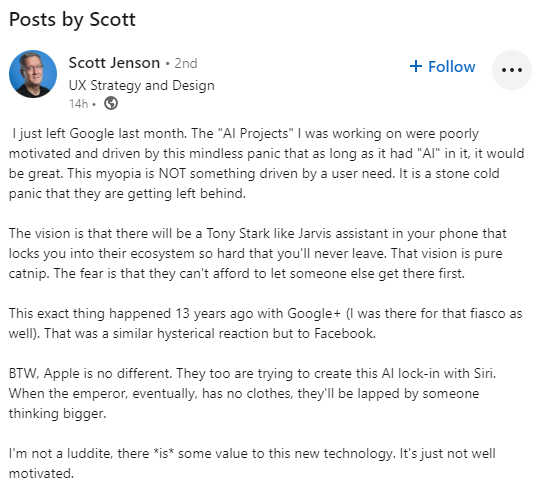Ex-Googler says company's AI panic is like Google+ fiasco all over again

UX strategist Scott Jenson, who left Google last month, criticizes the company's AI projects as poorly motivated and driven by panic.
Google's goal, according to Jenson, is to create a Jarvis-like assistant that keeps users locked into Google's ecosystem. The company is driven by the fear that someone else might get there first.
Jenson compares the situation to the Google+ fiasco 13 years ago, which was a knee-jerk reaction to Facebook, according to Jenson, who worked for the company at the time. He says that AI has potential, but that Google's ambition is "just not well motivated."
Apple is pursuing a similar AI lock-in strategy with Siri, Jenson believes. Apple is reportedly planning a collaboration with OpenAI, and an announcement is expected at Apple's upcoming WWDC developer conference in June.

Google revealed a ton of AI projects at I/O 2024. But most of these projects are still in the experimental stage, are only available to a few users, or won't be available until later this year.
It's not yet clear how much value these projects will bring to users or if they will be useful. Even with features like handwriting recognition in Gmail or Google Docs that are already available, it's not clear that people are using them or finding them helpful.
Some of you may remember Google's much-hyped AI voice "Duplex," which was supposed to automate all those annoying phone calls and call centers. That was in 2018, six years ago. Since then, we've seen how it's turned out.
Google's biggest AI feature is one that no one asked for
Google's "AI Overviews" in Google Search are one of those AI projects that are available on a larger scale. They're quick summaries of website content that show up as direct answers to search queries instead of links.
They're also getting a lot of flak for being created without the website operators' consent, which could lead to copyright infringement. Plus, they can contain false information without it being clear who's responsible. They also affect how content is shared on the World Wide Web.
Google recently rolled out a new "web" filter that only shows classic links to websites. The company is selling this as a convenient feature, but at the same time they've basically reduced the WWW to a filter.
This could be a step toward the Jarvis vision that Jenson mentioned, where Google gradually stops relying on external sites and becomes a closed platform, just like social media.
AI News Without the Hype – Curated by Humans
As a THE DECODER subscriber, you get ad-free reading, our weekly AI newsletter, the exclusive "AI Radar" Frontier Report 6× per year, access to comments, and our complete archive.
Subscribe nowAI news without the hype
Curated by humans.
- Over 20 percent launch discount.
- Read without distractions – no Google ads.
- Access to comments and community discussions.
- Weekly AI newsletter.
- 6 times a year: “AI Radar” – deep dives on key AI topics.
- Up to 25 % off on KI Pro online events.
- Access to our full ten-year archive.
- Get the latest AI news from The Decoder.